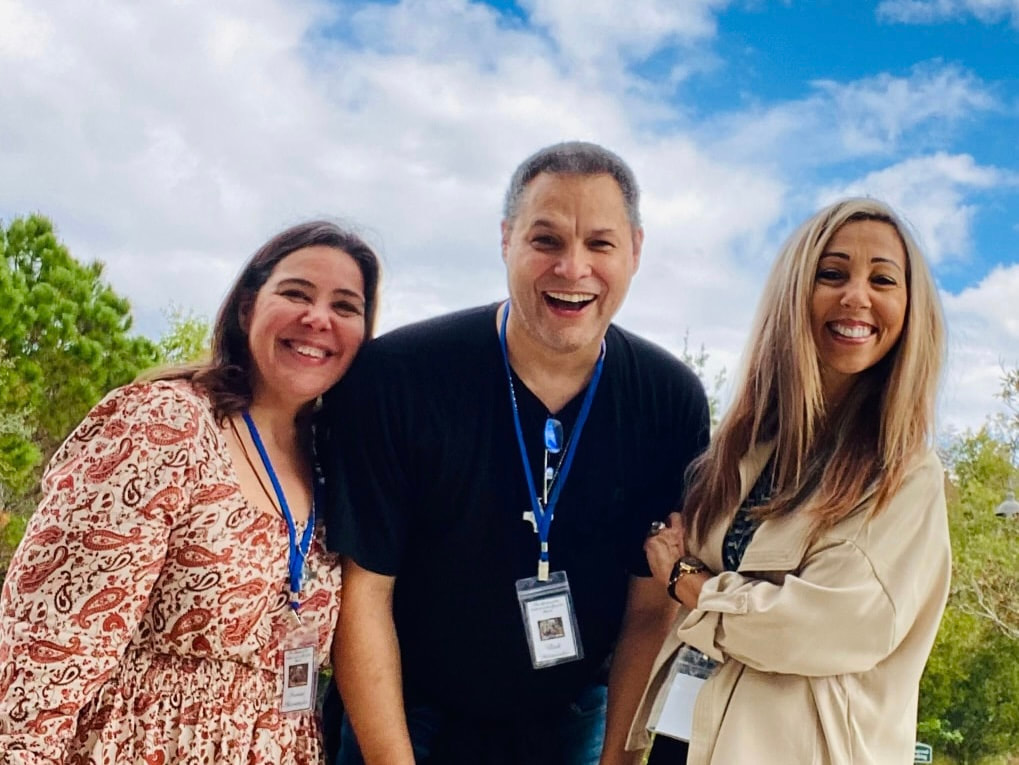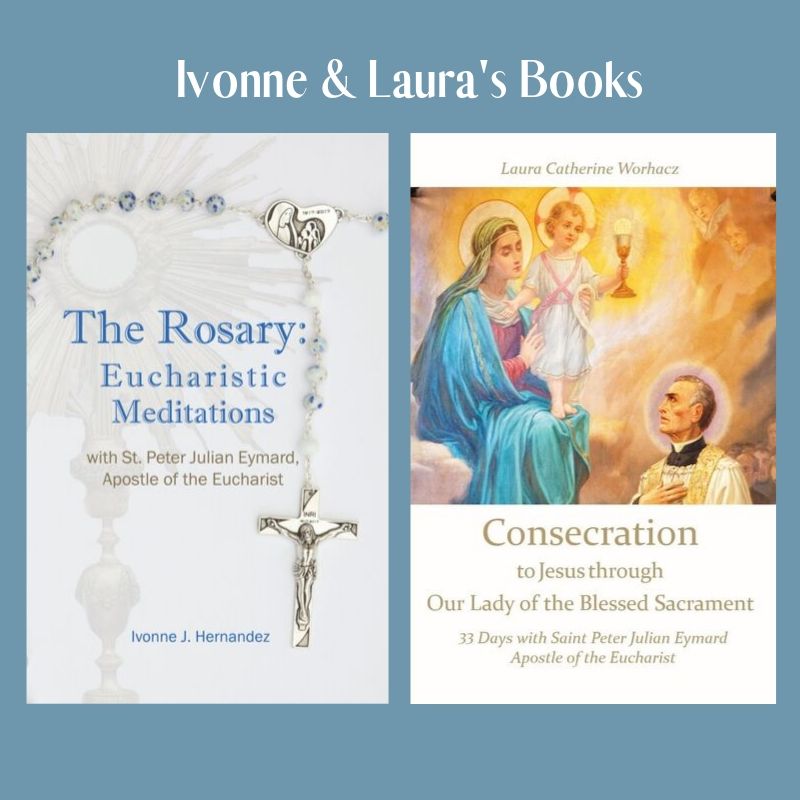ELISHEBA BLOGLaura, Ivonne, and Rick
write about their lives in the Eucharist. |
|
By: Ivonne J. Hernandez “My tears have been my bread day and night, as they ask me every day, ‘Where is your God?’” (Ps 42:4). So much of my devotion has depended on and benefited from the frequent reception of Holy Communion and attendance to daily Mass that the experience of “fasting” from them has been very disorienting. It is almost like if a magnetic field confused my inner compass as my soul searched for His Presence in our midst. I know God is everywhere; I know He dwells in me, yet… What does it mean to be a Eucharistic person when I don’t have access to the Eucharist? This has been the question in my heart. I remember clearly the last day I received Jesus Sacramental; I knew it would be the last time, at least for a while, and I said goodbye. I thought of Jesus’ words at the Last Supper, “I tell you, from now on I shall not drink this fruit of the vine until the day when I drink it with you new in the kingdom of my Father” (Mt 26:29), and I wept. I had the blessing of sitting in Eucharistic Adoration for an hour afterwards, and I begged for the graces I would need during our time apart. I knew he would sustain me, yet I knew it would be hard. For a while I consoled myself in the knowledge that He is always with me, and focused on praying with Scripture and watching live streamed Mass. I joined in spiritual communion and, for a while, I thought I was fine. The knowledge that the Mass was still being celebrated by priests all around the world, and even in my own backyard, brought much solace, yet the question continued to nag in my heart… What does it mean to be a Eucharistic person when I don’t have access to the Eucharist? What should be different for a Catholic during this time? I thought of Jesus hidden in the bread and wine, and I allowed myself to mourn for what I once had. As tears streamed down my face I felt a longing I did not know I had. “My tears have been my bread day and night…” The tears become my bread, the longing my life. It is this desire that, watered by the tears of my love, God is allowing to grow inside. I thought of the beautiful “O Antiphon” prayers we pray during Advent, and how God waited patiently for his people’s desire for him to grow. The longing in our hearts expands our capacity to receive his love. Yet our longing is tempered by the knowledge that He is already in our midst and that He is alive in our hearts. So, with that joy we wait patiently, and allow our hearts to be stretched a little more, knowing that the pain in itself is a sign of our love. And ultimately, this is what our call is and has always been, to love. May our hearts grow in that love as we ponder on His Presence in the Tabernacle, waiting and longing for us. May we quench his thirst for souls by our prayers and service, by our acts of love. May this chalice of suffering we receive from His hands, mingled with our tears, become bread for others. And, “May the Heart of Jesus, in the Most Blessed Sacrament, be praised, adored, and loved with grateful affection, at every moment, in all the Tabernacles of the world, even until the end of time. Amen.”
1 Comment
Suzann
10/19/2020 11:40:52 pm
Psalm 42:4 reflects this pandemic fasting from the Eucharist so perfectly! and the image of the woman behind the wet glass illustrates your essay perfectly!
Reply
Your comment will be posted after it is approved.
Leave a Reply. |
Categories
All
FOLLOW US ON SOCIAL MEDIA:
AuthorsWe are Ivonne J. Hernandez, Rick Hernandez and Laura Worhacz, Lay Associates of the Congregation of the Blessed Sacrament, and brothers and sisters in Christ. |
Copyright © 2024 Elisheba House Inc.
Elisheba House is a 501(c)(3) non-profit organization. Federal Tax ID Number 84-1894146
Florida registration for Solicitations of Contributions #CH71652
A COPY OF THE OFFICIAL REGISTRATION AND FINANCIAL INFORMATION MAY BE OBTAINED FROM THE DIVISION OF CONSUMER SERVICES BY CALLING TOLL-FREE (800-435-7352) WITHIN THE STATE. REGISTRATION DOES NOT IMPLY ENDORSEMENT, APPROVAL, OR RECOMMENDATION BY THE STATE.
Florida registration for Solicitations of Contributions #CH71652
A COPY OF THE OFFICIAL REGISTRATION AND FINANCIAL INFORMATION MAY BE OBTAINED FROM THE DIVISION OF CONSUMER SERVICES BY CALLING TOLL-FREE (800-435-7352) WITHIN THE STATE. REGISTRATION DOES NOT IMPLY ENDORSEMENT, APPROVAL, OR RECOMMENDATION BY THE STATE.




 RSS Feed
RSS Feed